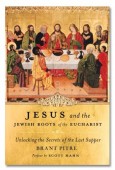If you accept, as I do, that the Blessed Virgin Mary was consecrated to virginal service in the temple, then it puts a new light on the Presentation of our Lord at the Temple celebrated in the Joyful mysteries of the Rosary.
Assuming that her consecrated service was unique, it would have been notable to those like Simeon and Anna who spent a lot of time at the temple. Assuming that her consecrated was not unique, there would have been not only those two blessed souls aware of her situation, but also an assortment of others likewise consecrated to service.
Joseph resolved to divorce Mary quietly when he found out she was pregnant, and it was only by the direct intervention of an angel of the Lord that he was relieved of his fear. Without the benefit of that intervention, I can only imagine her reception upon return to the temple.
Unless the people of that time were far less cynical, and far more charitable than the people of our time, it seems likely the story could have been expected to go something like this:
Psst… see that woman with the child? Yeah, she used to be a consecrated virgin. Guess that didn’t work out so much, huh? (wink, wink, nudge nudge) Can you believe she has the nerve to show her face in the temple? It’s going to cost a lot more than a couple of birds for her purification! Do you think we ought to chase those sinners out of here with a scourge? I’ve got one here that I use to keep the sheep in line.
What incredible courage and humility Mary demonstrated by coming to the temple in obedience to the law.
And what a blessing Simeon and Anna’s warm reception must have been! Joseph and Mary, in their humility, were obedient to the word of God. God, in his goodness, amazed Joseph and Mary with consolations from the Holy Spirit. Isn’t that just like our heavenly Father?

